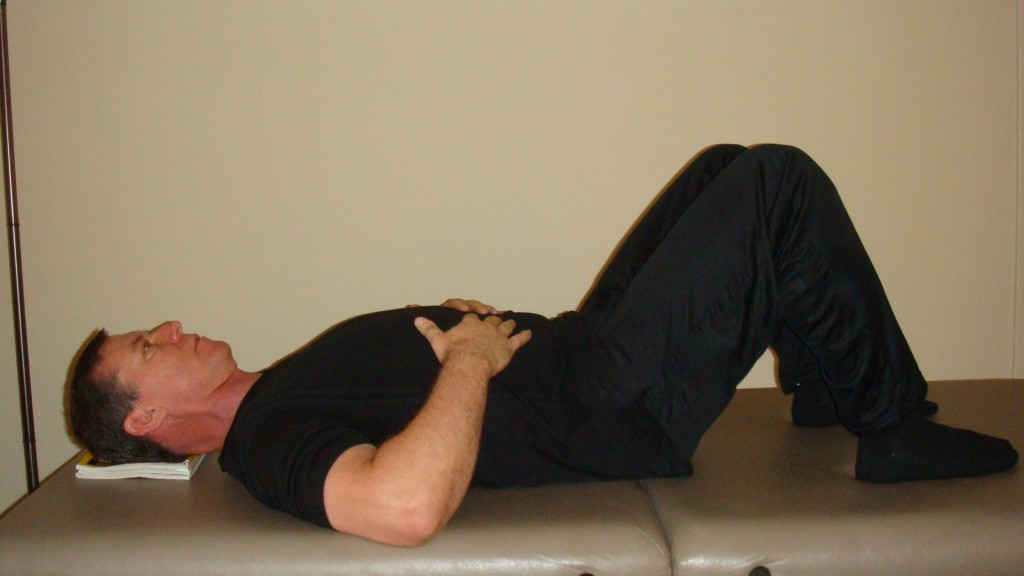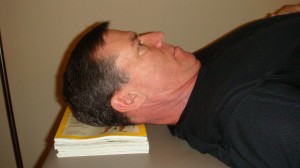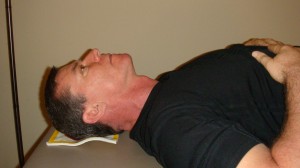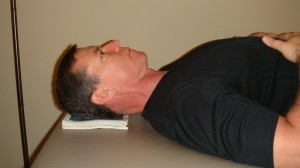Musicians come to me for Alexander Technique lessons for a variety of reasons, but typically it’s because they’re experiencing a lot of unwanted tension (and often pain, too) as they play their instruments. Since they know I’ve been successful in applying the Technique to solve my own problems as a musician, they invariably ask this question: “What does it feel like to play music without all that excess tension?”
They are often surprised (and sometimes annoyed) by my seemingly evasive answer: “I don’t really pay much attention to how it feels.”
Of course, they press me on this subject. “So you purposely ignore how you feel when you play?”
“No, I wouldn’t say that. I easily sense what’s going on in myself and include this into my consciousness. But I don’t let the feeling of what I’m doing guide my efforts. I realize that what I feel is a result of how I’m directing my thinking. So I want to stay with directing my thinking in such a way as to play my best, and that includes playing with much less tension and effort than I used to create habitually. I’ve learned to trust my thinking, and so I simply acknowledge and enjoy the feeling of playing my instrument.”
As they press me further, it becomes clear that what they really want is for me to describe what it feels like to play now, as opposed to my “pre-Alexander” self. Fair enough. This is the answer I give: “To play now it feels practically opposite of what I thought it would feel like to play freely and easily before I started taking Alexander lessons.”
Practically the opposite of how I imagined it.
This is an important thing to keep in mind when changing your habits.
F.M. Alexander said that, because we are so strongly guided by what our habits feel like, when we actually do something different, even though it might be better for our purposes, it will very likely feel wrong. He described this as having a faulty sensory awareness.
And it is for this reason that it’s not a good idea to be guided by what you feel when you are trying to change your habit. Instead, you’d be better served by being guided by what you can discern. Guided by your thinking, so to speak.
Musicians are strongly conditioned in their habits by their perception of what it feels like to be in control of their instrument. Yet sadly enough, the very efforts some musicians employ to control their instrument become the habit that makes control more difficult, if not impossible.
Then a vicious cycle begins. You start playing with too much tension in an effort to control your sound, time, technical facility, pitch, etc. You actually start having a harder time controlling these things (because of this tension), so you start misdirecting your energy further, adding even more tension and effort to playing your instrument. This takes you even farther from control and confidence.
After a time you begin to believe that you have to use all this effort to get control over your instrument. Yet the more you try, the worse things get. This begins to develop certain unhelpful, yet strong habits.
And the cycle continues, sometimes until pain and injury step in to tell you in no uncertain terms that it’s time to do something different.
Well, if you’re going to do something different with your playing habits, remember that you have to let go of being guided by what it feels like to be in control.
In my case, I would have perceived the feeling of actually being in better control over my instrument as being out of control. Too soft, too mobile, too flexible. This doing more work, that doing less work. This part moving, the other part being still, etc. All wrong, if I were to be guided by the feeling of my habits. I would have never let myself feel that way, because it would have felt like I couldn’t even play the saxophone.
And this is where the Alexander Technique comes in. As I began to study and apply the Technique, I learned to be guided by reasoning and discernment instead of feeling. What is necessary and what is not to play my instrument. Never mind what it feels like. What am I actually doing (in contrast to what I think I’m doing) as I play? Is this helping me, or making things harder?
As time passed I began to greatly attenuate my habits of tension, and in doing so, began to gain real control over my instrument again. And of course, how it feels to play is much different from before. But as I said, I don’t pay much attention to that feeling. It doesn’t at all feel strange to play now, by the way. It actually feels quite wonderful: fluid, dynamic, easy and free. Because it actually is.
Where our habits are concerned, often what we want is not real change. We want to do the same thing the same way, but somehow with better results (that was Albert Einstein’s definition of insanity). We want it to feel the same way minus the excess tension and pain. That can never happen.
So realize that you probably have no idea what it feels like to play without all your habits of tension (nor should you care). That, in fact, it might feel quite wrong (even though your playing would be considerably better). Don’t hold onto your preconception of feeling. Find yourself a good Alexander Technique teacher and learn to trust your thinking instead to find highly favorable, consistent results.





